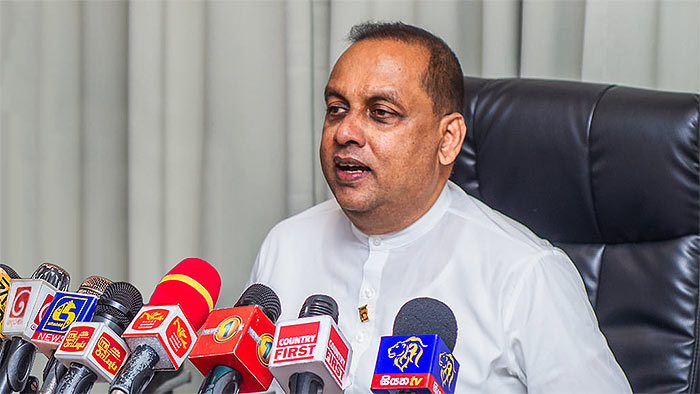Environment Ministry keen on a Paperless Parliament

The Environment Ministry will launch a programme under the theme ‘Paperless Parliament’ to reduce the use of paper in Parliament.
According to an idea of Environment Minister Mahinda Amaraweera, a preliminary discussion on this programme was held at the Ministry recently.
The discussion was chaired by Environment Minister Mahinda Amaraweera. Dr. Anil Jasinghe, Secretary to the Ministry of Environment and several Parliament officials
were also present. MP Suresh Raghavan joined the discussion through Zoom.
The Minister said that every day during the Parliament, a large number of books and pamphlets are piled up on the table and this causes huge environmental damage and a waste of resources on a daily basis.
The Minister said the Environment Ministry is proposing a programme to have a paperless Parliament. He also stressed that at least 40 feet high 37 trees will have to be cut down for the use of paper on a day in parliament.
Steps should be taken to implement this programme immediately, he said. It was also emphasized that the printing of Hanzard costs around Rs.10 million per day.
Minister Amaraweera stated that he will submit a proposal to the Speaker to appoint a Parliamentary Select Committee at the party leaders meeting to implement the programme for a paperless parliament. It was also emphasized that the support of the Speaker as well as all Members of Parliament should be sought for this programme. It was decided at this discussion to begin work from January 2022.
(Source: Daily News)

Latest Headlines in Sri Lanka
- Court of Appeal to rule on IGP Tennakoon’s arrest warrant on March 17, 2025 March 12, 2025
- Military deserter arrested for sexually assaulting doctor at Anuradhapura Hospital March 12, 2025
- Tuition teacher under investigation for student assault ignores NCPA summons March 12, 2025
- Sri Lanka maintains stance on Adani, open to investment March 12, 2025
- Doctors strike over delay in arrest of sexual assault suspect March 12, 2025



Good thinking to have a paperless parliament.
But how many of the dudds in there have the capacity to adopt technology?
How many can even open and read an email?
In addition to the paperless Parliament, a dudds-less parliament should also be implemented.